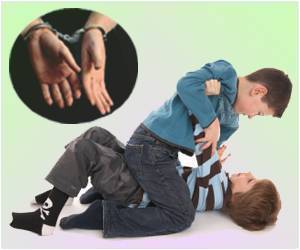Adults born with extremely low birth weight reported significantly higher levels of anxiety, depression, shyness and lower social functionality.
Highlights
- Extremely low birth weight (less than 1,000 grams or just over 2 pounds) babies have a greater chance of surviving these days.
- Individuals born with an extremely low birth weight are //at higher overall risk for psychological difficulties.
- These difficulties most frequently involve attention, anxiety-related and social problems.
- As children and adolescent, ADHD was a major risk and as adults, anxiety, depression and shyness were significantly high.
Extremely low birth weight babies were found to be at increased risk for particular mental health problems, beginning in childhood and extending at least into their 30s.
Preterm births have increased dramatically over the last two decades and now make up about 8 percent of infants born in the United States and Canada. Because of improvements in recent decades in neonatal intensive care, babies who are born at extremely low birth weight (less than 1,000 grams or just over 2 pounds) have a greater chance of surviving than ever before.
As children, they were significantly more likely to have attention deficit hyperactivity disorder in almost every study included in the review.
Adolescents were also at greater risk for ADHD and social problems. Adults born with extremely low birth weight reported significantly higher levels of anxiety, depression and shyness, as well as significantly lower levels of social functioning.
Mathewson believes these findings may stem from biological responses of the infant to difficult prenatal conditions and postnatal stresses following early birth.
Even though the risk for mental health problems in extremely low birth weight survivors is increased compared to normal birth weight individuals, many will not develop mental disorders at all, Mathewson noted. But the effect sizes for ADHD, social problems and internalizing disorders were moderate-to-large in extremely low birth weight children, and remained moderate in extremely low birth weight adolescents.
(A moderate effect is generally apparent to an unaided, careful observer). Moderate effects of birth weight status suggest that group differences in the risk for these mental health problems can be significant.
The findings point to the need to continue to provide services to these individuals throughout their lives, according to Mathewson.
"It is important that families and health care providers be aware of the potential for early-emerging mental health problems in extremely low birth weight survivors, and that some of these individuals may not grow out of these problems as they get older," she said.
"As a result, it is essential that appropriate treatment be made available to those who require it as early in life as possible."
Reference
- Karen Mathewson et al., Mental Health of Extremely Low Birth Weight Survivors: A Systematic Review and Meta-Analysis, Psychological Bulletin (2017).
Source-Medindia
















